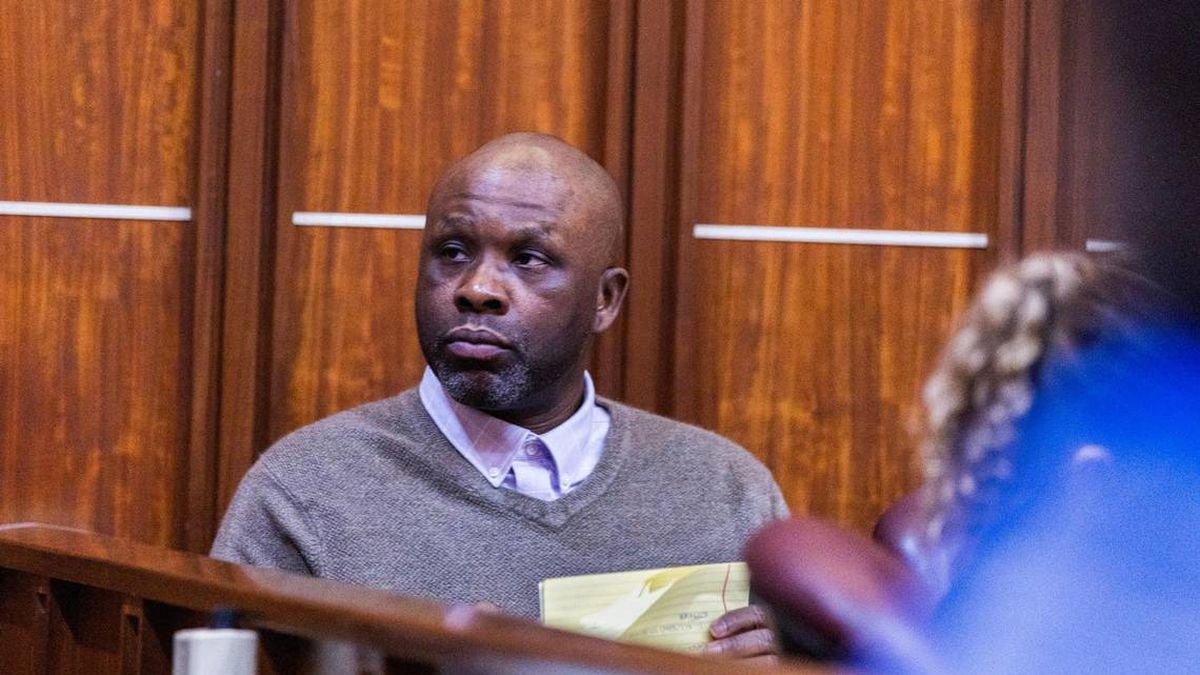MIAMI — In a late-night decision on Thursday, a Miami-Dade jury opted to spare the life of an individual who had been condemned to death 14 years ago for the execution-style killing of five people in a Little Haiti apartment nearly three decades prior.
The jury, in a unanimous agreement, found Tavares Calloway guilty of the murders but fell short of the new 8-4 vote threshold required for a death sentence, a standard introduced last year by state lawmakers in the aftermath of the Nikolas Cruz case. Cruz, the Parkland shooter, did not receive a unanimous jury decision for a death penalty sentence. Prior to the legislation passed in March 2023 in Tallahassee, a unanimous jury vote was mandatory to send an individual to death row.
Following the jury’s decision, Tavares Calloway, accompanied by his defense attorneys Carmen Vizcaino and Scott Saken, expressed relief as he was spared from death row and instead sentenced to life imprisonment for the 1997 murders in Little Haiti.
Calloway is believed to be the first convicted murderer in Miami-Dade, among a group of more than a dozen slated for resentencing, to have his life spared under the revised guidelines, positioning Florida as the state with the most lenient process for condemning a murderer to death row. Similarly, in a Broward case, a jury chose to spare the life of convicted killer Clark Paul last year during resentencing under the updated rule.
The decision to impose a life sentence concluded a two-week trial where state prosecutors and Calloway’s defense team presented contrasting characterizations of the convicted killer. Prosecutors painted him as a ruthless and methodical murderer who not only stole from the victims but also stripped them of their dignity. Conversely, Calloway’s defense attorneys underscored his tumultuous upbringing and personal growth while incarcerated, attributing it to his involvement with the church and intellectual pursuits.
The jury’s verdict, delivered after eight hours of deliberation, visibly moved Calloway, who wiped away tears as he was escorted to jail. His defense counsel, Scott Saken, lauded the substantial progress Calloway had made during his time behind bars and commended the jury for acknowledging this transformation.
In their deliberation, the jurors had to weigh various aggravating factors to determine the appropriateness of the death penalty, considering elements such as kidnapping, extreme cruelty, premeditation, and financial motives. Despite Calloway’s confession to the police, the jury focused on the mitigating factors presented by the defense, highlighting his challenging past and adverse circumstances.
The case revolved around a horrific incident where Calloway and an accomplice, Antonio Clark, fatally shot five men during a planned robbery. The trial revisited the chilling specifics of the crime, including the victims being coerced to undress and lie on the floor before being executed. The prosecutor vividly recounted the sequence of events leading up to the murders, underscoring the brutality and calculated nature of the act.
Ultimately, the jury’s choice to spare Calloway’s life reflected their acknowledgment of his troubled history and potential for rehabilitation, leading them to opt for a life sentence instead of the death penalty.
